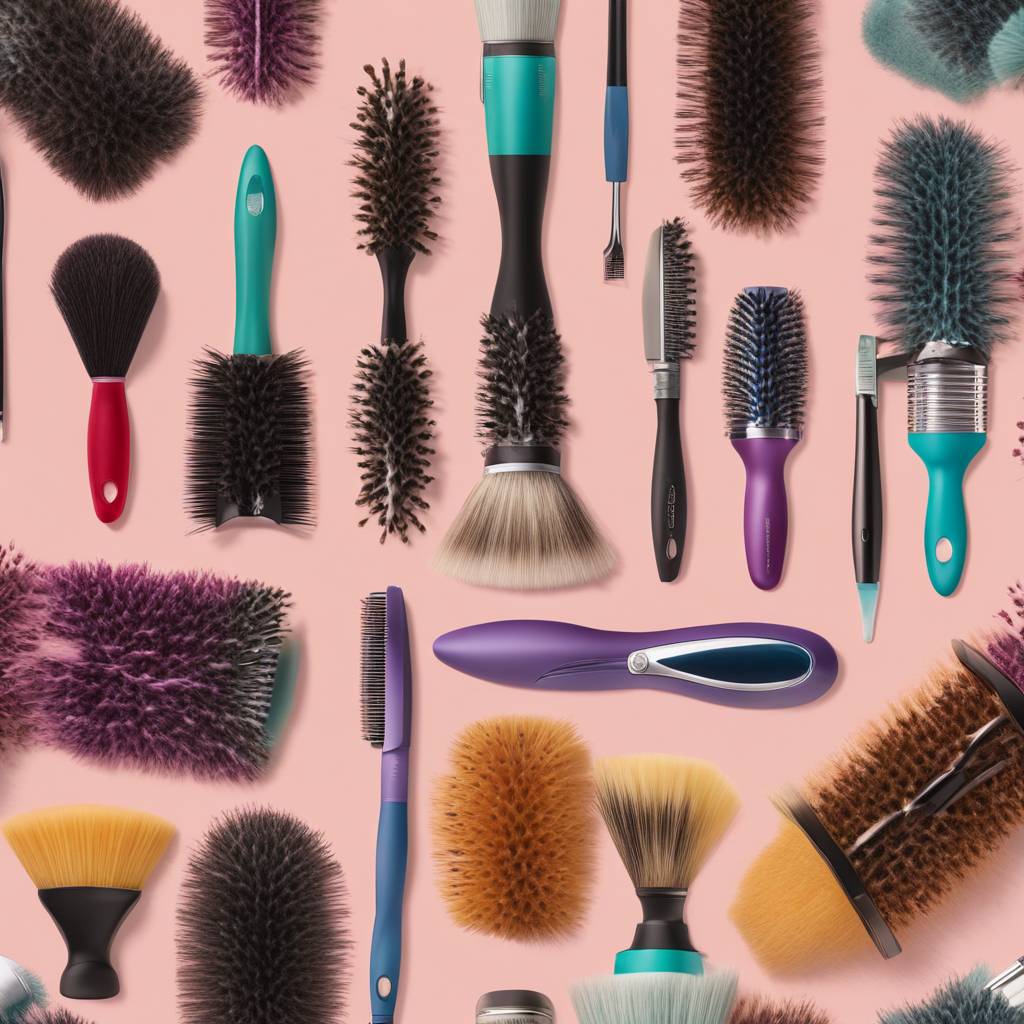Keeping your hair brushes and combs clean is essential for maintaining healthy hair and scalp. If you use styling products or hot hair tools frequently, it’s recommended to wash your brushes more often to remove debris. For most types of brushes, like round brushes, teasing brushes, paddle brushes, or flat brushes, the same cleaning rules apply. However, brushes used for your edges should be washed weekly, according to recommendations from experts. Combs made of wood do not need to be washed as frequently, while combs made of synthetic material should be washed weekly if used daily and every three to four weeks if not. Removing loose hair after each use is also important for maintaining the cleanliness of your combs.
When it comes to cleaning your hair brush, it’s important to consider the material you’re dealing with. Synthetic brushes are easier to wash compared to those with natural bristles, such as boar bristle brushes. Natural bristle brushes require gentler cleaning methods to preserve their integrity, while brushes with cushioned bases and wooden handles need special attention to prevent water damage or warping. There are different ways to clean your hair brush, including hand washing with shampoo, spritzing on soap and water for natural bristle brushes, and using vinegar to break down heavy oil and product buildup.
Hand washing with a DIY cleansing agent of shampoo and water is suitable for non-porous materials like silicone, hard plastic, or rubber brushes. Start by removing trapped hair between the bristles with a comb or cleaning tool, then soak the brush in warm water with a small amount of shampoo or liquid soap for 10 to 15 minutes. Rinse the brush thoroughly and let it air dry. For brushes with natural bristles, wood, or cork, avoid submerging them in water and instead spritz a mixture of shampoo and water onto the bristles. Use your hands or a clean toothbrush to massage the bristles and remove any product residue before rinsing with warm water and laying it out to air dry.
Vinegar can be used to break down heavy oil and product residues, like hair sprays and gels, on brushes. White vinegar, in particular, has antibacterial properties that can kill bacteria and neutralize odors. It is safe to use vinegar on brushes without causing damage to the bristles or base of the brush. Regularly cleaning your hair brushes and combs is essential for maintaining healthy hair and scalp, as dirty tools can transfer bacteria and product residue to your hair. By following the recommended cleaning guidelines and using the appropriate methods for different types of brushes, you can ensure that your hair tools are clean and in good condition.













